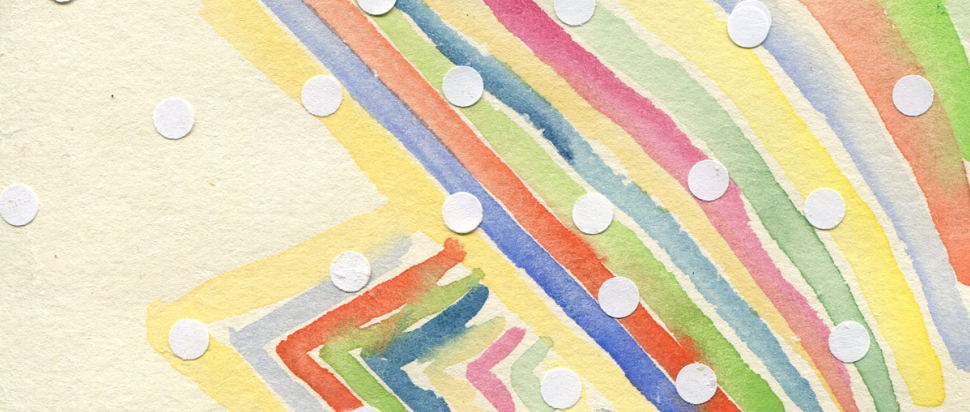Polmont Youth Theatre: Seeing Beyond the Bars
The Polmont Youth Theatre, established in 2019, was the first Youth Theatre ever set up in a Scottish prison. The Skinny speaks to its co-founder, Jess Thorpe, about drama as healing and why reframing crime as a public health issue has been so important
HMYOI Polmont is Scotland's national holding facility for male young offenders. Located in Falkirk, the institution's residents are between 16 and 21 years of age. Their sentences range from six months to life – the average sentence being served is between two and four years. Polmont is just over 20 miles to the north-east of Glasgow, a city once so notorious for its high rates of knife crime, particularly among young people, that it was once dubbed 'the murder capital of Europe'. It is also home to the first ever youth theatre based in a Scottish prison.
"It just seemed strange that Scotland's national facility for young people didn't have a youth theatre," says Jess Thorpe of its conception. Thorpe is a lecturer in the Arts in Social Justice at the Royal Conservatoire of Scotland, and co-artistic director of the theatre company Glass Performance. She founded the Polmont Youth Theatre with her Glass Performance co-director Tashi Gore in 2019, following the success of MOTION – the show devised with Polmont residents for the National Theatre of Scotland's Year of Young People programme, Futureproof.
When the show received glowing feedback, Thorpe saw an opportunity to create something more sustainable. "What we did was propose an all year round performance arts group that young people could attend every week," she says. "We put on two shows every year with full production values." When participants are in Polmont's performing arts centre, Thorpe tells us, a huge number say they forget they are in prison. "That's the goal: to give them a voice and a sense of what they can be beyond this serial number." She suggests that accessing the 'idea' of freedom through creativity is a hugely powerful thing for the incarcerated: "participating in the arts is a way to transcend the walls. You can [escape] the caged moment to find a sense of freedom."
Arguably, the ethos of the Polmont Youth Theatre – focusing on maintaning consistency and sustainability, running participant-led workshops and using drama as a method of healing – reflects a wider attitudinal shift towards youth crime and young offenders; one that has taken place in Scotland over the last decade. In 2005, a UN report revealed Scotland was the most violent country in the developed world. Much of the blame was directed towards high levels of gang membership among young people in the country, particularly in Glasgow and the surrounding areas.
Ramping up the 'tough on crime' shtick hadn't really improved matters, so the Scottish Government took a different approach. They formed Scotland's Violence Reduction Unit, an independent body from the police that sought to redefine crime as a 'public health issue'. Recent statistics show that violent crime in Scotland has reduced by nearly half since 2009. Knife crime continues to rise in England and Wales, but the number of incidents in Scotland are consistently dropping. It's a switch of mindset that seems to have worked.
If violence is 'a disease infecting our communities', as described by the SVRU, then it's crucial that we understand enough about the condition to treat it. For Thorpe, recognising the psychological roots of criminal behaviour among young people is key to breaking the cycle. An overwhelming 91% of the young men she works with at Polmont have experienced bereavement. "What we start to understand when we look at things like that is that this is absolutely a public health issue," she explains. A youth theatre offers 'a place of care, a place of healing and place of moving forward'.
"We know that the young people we work with in Polmont are some of the most traumatised in Scotland," she says. "They have caused a lot of harm to other people – but they've had harm caused to them too. A lot of the time, their behaviour is a direct emotional response to a repressed culture where there isn't a way for them to explore their own trauma about the harm that's been done to them." The regular sessions at the Youth Theatre provide participants with an environment to express and process emotions on their own terms. The devising methods used are cross-explorative; if young people want to play with music, they can – if they're more into writing, they can go down that path, too. The young men devise the show, with only a vague prompt. 2018's MOTION was a response to the question 'what does it mean to be a young man in Scotland today?'
Providing a consistent, creative space for young people is beneficial, not only for participants, but also for communities. The PYT gives participants experience in something that isn't associated with the 'offender' label, and Thorpe supports them to seek out other youth theatres in their area, if they choose to, after leaving Polmont. "It's about sustainable, long-term opportunities, addressing that stigma and keeping young people with difficult, chaotic lives in our communities," says Thorpe.
"As much as these young people have done things that may be difficult to understand or contextualise within our own lives, they are a part of our community. We have to work positively with people, otherwise the future won't look any better. We're not trying to reduce the impact of any of the behaviours here, but we are trying to go, 'what next?'" She pauses. "Because they're young people. And if you can't be hopeful about young people, what can you be hopeful about?"
glassperformance.co.uk/polmont-youth-theatre/
